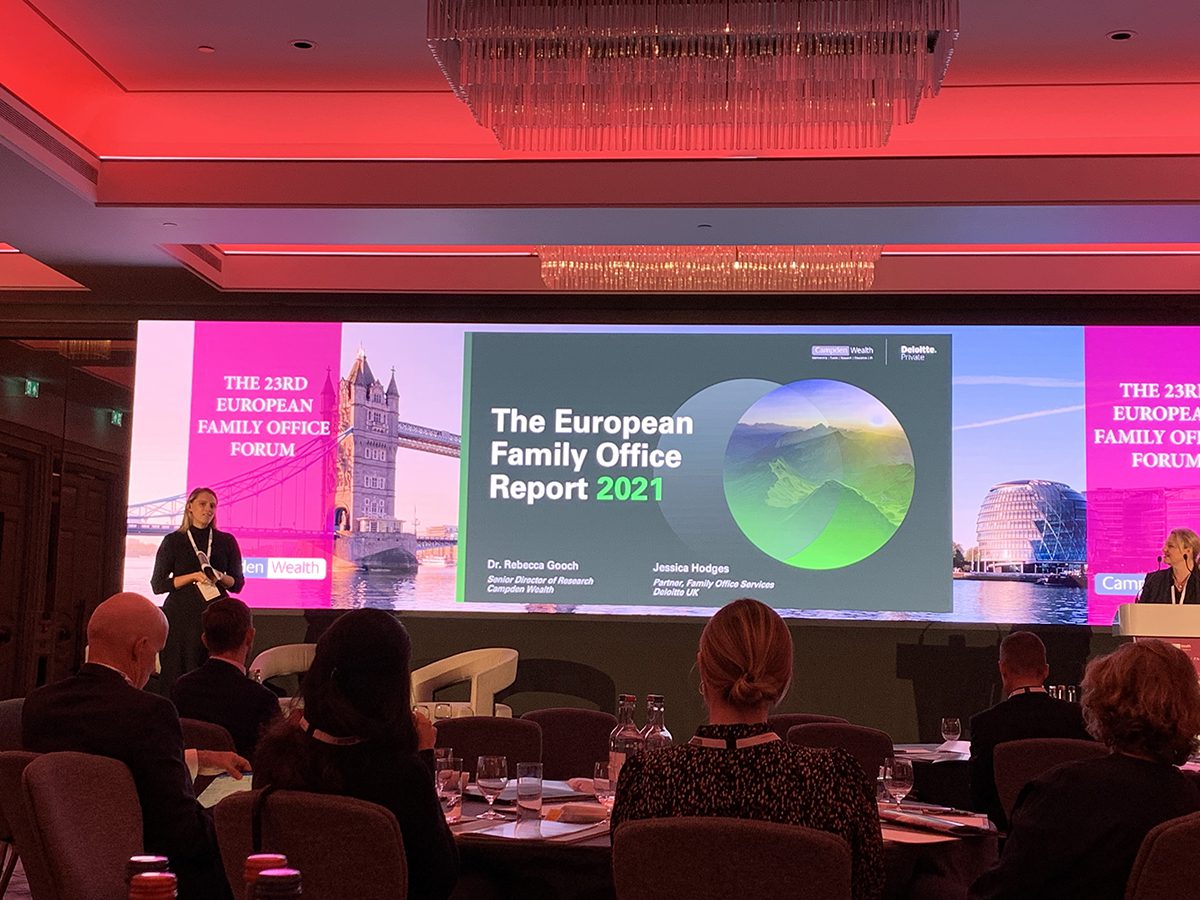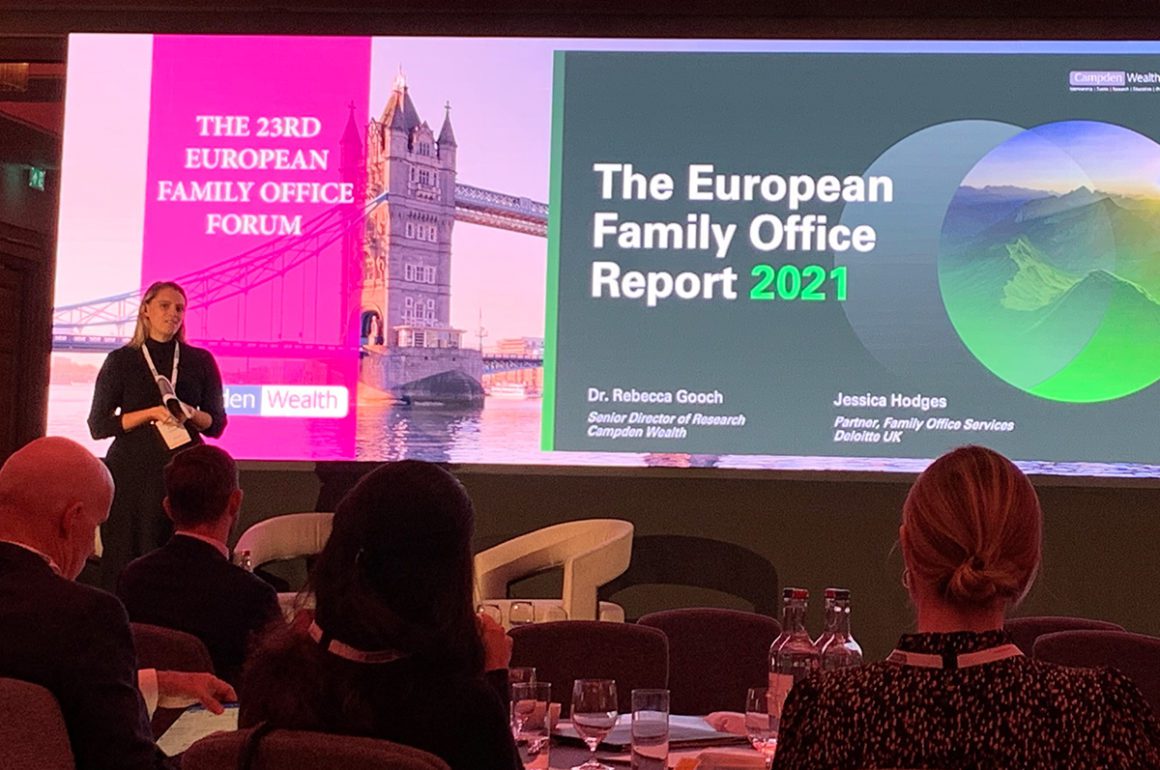
Harnessing renewable energy from sources like hydro electric power is essential for investing in the future

Jessica Hodges
From renewable energy to alternative food products, biotech to healthcare, ESG is helping to bring impact to the forefront of investment portfolios. As a partner at Deloitte, Jessica Hodges is responsible for helping private clients build responsible investments into their portfolios. She speaks to LUX about the increasing centrality of ESG to business strategy and why family offices need to be ahead of the curve. By Samantha Welsh, Philanthropy Editor.
LUX: What drove your own interest in ESG?
Jessica Hodges: I was interested in ESG issues from a young age – albeit the acronym didn’t exist yet – and was always keen to get involved in projects that had a social or environmental angle. My job means I come into contact with a large number of families, and I’m keen to ensure that we, and they, make an impact through the work we do. Considering environmental, social and governance (ESG) risks is becoming increasingly central to business strategy.
LUX: What trends are you currently noticing among family offices?
Jessica Hodges: Family offices are all unique, but generally we are seeing more of an interest from the next generation in issues that have a positive impact on the environment and on society. Younger generations are becoming increasingly involved in managing their family’s wealth and demanding investments that align with their values. They are particularly focused on how they measure ESG impact, considering on a case by case basis the impact companies are having and how they may change to align to ESG values, as well as using data to understand it.
Many next gen clients feel a real sense of obligation – particularly if the source of their wealth may not have been considered to have positive impacts in the past. Often in a family with multiple siblings, you might see one sibling managing the family business, one running the family office and one leading the philanthropic side of things.
LUX: Which sectors are next gen investors most interested in?
Jessica Hodges: Areas of focus include renewable energy infrastructure projects; alternative food products; agricultural technology and alternative farming; healthcare and biotech. What is so interesting is how ESG is bringing that ‘impact’ element into the broader investment portfolio – an area I think family offices are ahead of the curve on.
Follow LUX on Instagram: luxthemagazine
LUX: What makes family offices potentially well suited to ESG investing?
Jessica Hodges: Family offices typically have more control over deciding and managing their priorities than public funds as they are private. They do not have to respond to shareholder demand in the same way, and have flexibility over how they use their large pools of capital. Their investment horizons are also often long term: instead of looking to make a quick return, they invest over five year periods or more, and do not have the same financial return requirements that larger venture capital firms have.
Being smaller, and typically more flexible and agile, makes it easier to introduce policy change and implement if they have the skillset to do so. Additionally, there are some family offices that are heavily focused on supporting their local community, helping to make more noticeable and measurable change locally rather than on a macro level.

Jessica Hodges delivering a speech at the Deloitte Family Office Conference
LUX: What basic interventions can a family make to incorporate ESG targets into an investment model which has been in place for generations?
Jessica Hodges: Due diligence of sustainability practices is key. This is an area that family offices will need to consider planning for, as a resource for sufficient oversight of external managers could be an issue for smaller organisations. It’s also key to have effective controls in place to measure and monitor fund managers, and ensure strategic objectives set by the family office are met.
ESG-proof due diligence and investment processes are also extremely important. This can include fully understanding the investment philosophy of any external managers (without any complicated jargon), obtaining evidence of shareholder engagement, and verifying performance data. The easiest intervention to make is often an exclusionary policy: the family picks a few areas they are not willing to invest in, such as organisations that negatively impact the environment or public health.
Read more: Professor Peter Newell on why the wealthy need to act on climate change
LUX: The ESG sector is unregulated and family offices value authenticity and trust: how do managers evaluate risks such as data validation, fraud, and greenwashing?
Jessica Hodges: It’s key that family offices have independently verified credentials. Besides checking a firm’s governance mechanisms, internal systems and controls, assurance would focus on whether there is a positive risk or ESG culture and a good level of awareness. In the same way that auditors come in to very financial data, providers will come to verify non-financial data over ESG metrics.
LUX: How is the ESG industry model disrupting traditional investing models?
Jessica Hodges: Firms are trying to determine which of their investments have both positive and negative social or environmental impacts and want to be clear on the implications of these with their public disclosures. They are also figuring out factors that will resonate most with their clients. If product governance is not thought through properly then there could well be negative consequences. My expectation is that there will be increased monitoring requirements with regards to asset portfolios, leading to additional costs – although proponents of this would argue that it is money well spent.
The sales part of the investment cycle is more complex since investors in ESG are not seeking to solely meet financial return objectives: at what point do you determine your exit? Historically, family offices – along with private equity – might have been looking to exit at the point when they could maximise their financial profits. Now, family offices will need to consider whether the targets outlined have been achieved, along with the broader impact on society or environment.
LUX: What makes a successful family office?
Jessica Hodges: The most important thing for a ‘successful’ family office is alignment of goals, and understanding what the family hopes to achieve. It is only by knowing where you want to get to that you can understand if you have really got there and measure how you performed!
Landscape photography by Isabella Sanai
Jessica Hodges is an Investment Management Audit and Assurance Partner at Deloitte







Recent Comments